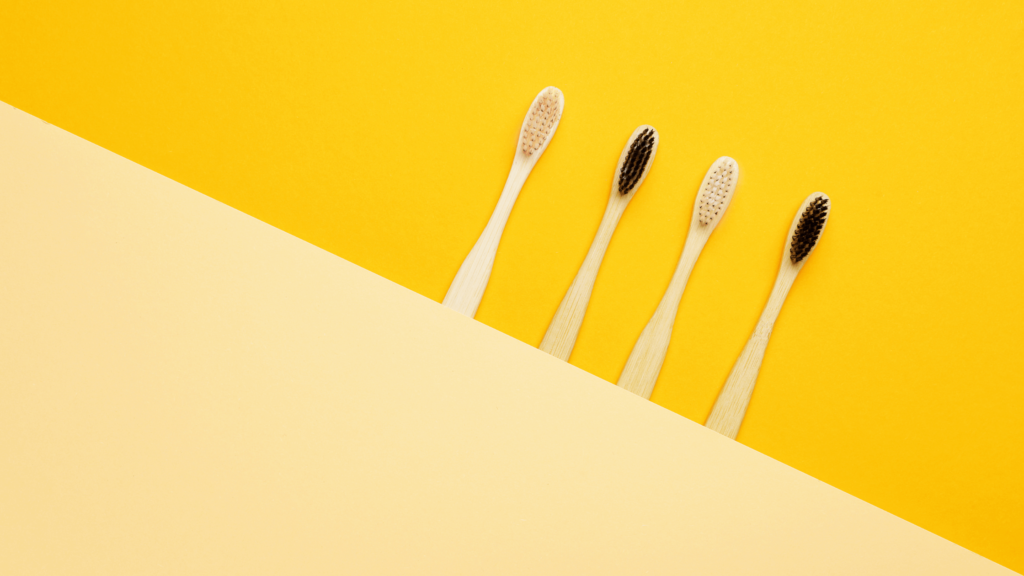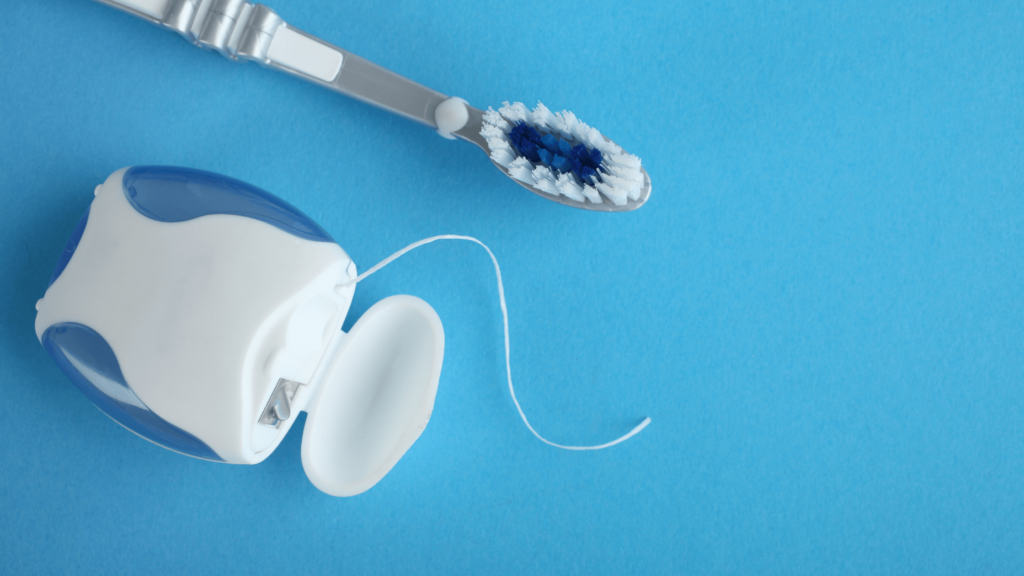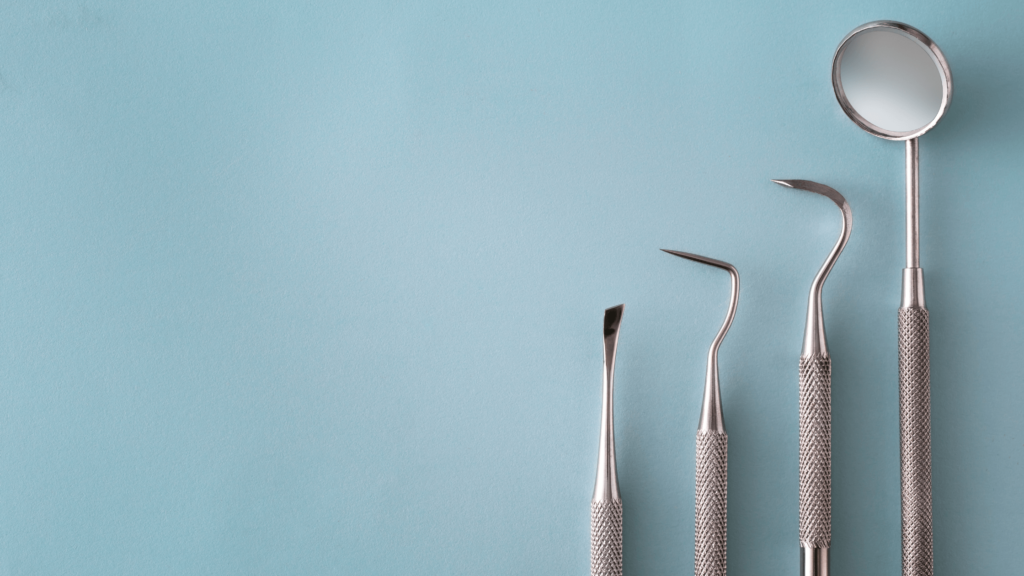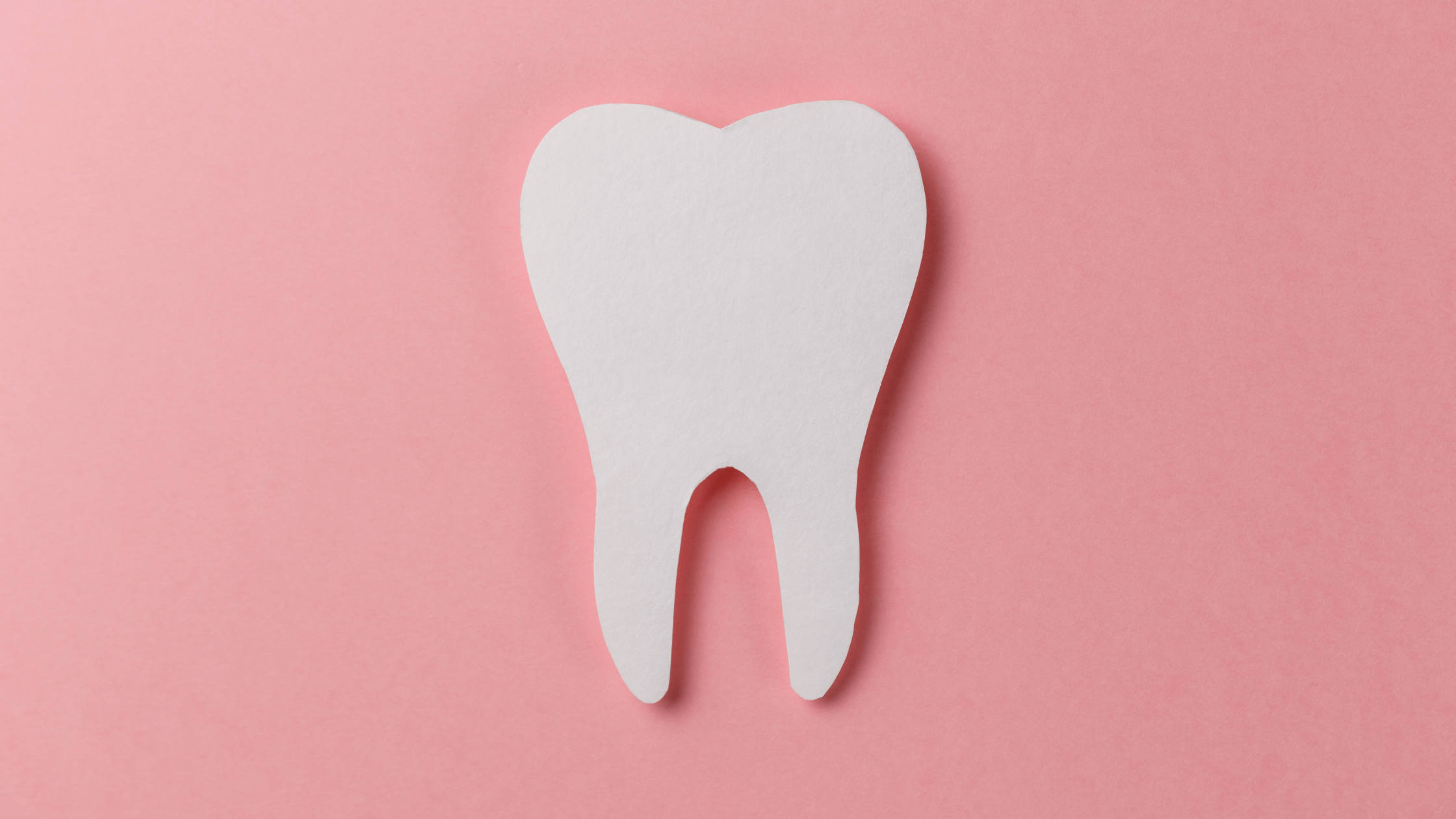Good oral health can brighten your smile and freshen your breath, but its benefits go deeper. Poor oral hygiene has been linked to conditions like cardiovascular disease and even pancreatic cancer. To improve your oral health, brush, floss, and scrape your tongue regularly while limiting your intake of sugary and acidic foods. Visit a dentist every 9-12 months for a checkup and cleaning or if you notice symptoms like bleeding gums, jaw pain, or mouth sores.
Oral health is about more than just brushing your teeth

You may think you have your oral health covered because you brush your teeth, but maintaining a healthy mouth is a little more involved.
Brushing
Oral health starts here. Brushing your teeth is the first step towards preventing tooth decay, reducing bad breath, and keeping your smile bright and white. Most dentists recommend brushing your teeth with a fluoride toothpaste at least twice a day—once when you wake up to get rid of germs and bacteria that may have flourished overnight and once before bed (or after you’ve finished your last meal for the day) to clean food debris from tooth surfaces.
Flossing
You knew this one was coming, right? While you might find flossing time-consuming, inconvenient, or just plain unpleasant, it is an essential part of oral health. Your toothbrush can’t get between your teeth, so plaque can quickly build up unless you floss. Plaque can cause inflammation of the gums, called gingivitis, and if you aren’t removing plaque by flossing regularly, it can harden and turn into calculus. Calculus can only be removed by dentists, and if you aren’t going to the dentist regularly, a buildup of calculus can cause periodontitis, a disease where your gums pull away from your teeth. But it can all be prevented by flossing for a minute or two at the end of your day.
Tongue scraping
If you’ve never heard of tongue scraping, it’s the process by which you remove film and debris from the surface of your tongue with a scraping device, usually made of plastic or metal. Research has shown that tongue scraping can reduce bad breath and reduce two types of bacteria that contribute to dental decay (Mutans Streptococci and Lactobacilli).
A healthy diet
You probably remember your mom telling you not to eat too much candy or you’d get cavities—this sage advice remains true, even for adults. Limit your intake of sugary and acidic foods and drinks to ensure your mouth is healthy. Whenever possible, brush your teeth after eating candy, ice cream, or other sweet foods to prevent sugar from settling into the surfaces of your teeth, or rinse your mouth with water if you don’t have a toothbrush handy.
Oral health matters
When it comes to oral health, there’s more at stake than your smile or how good your breath smells. Good oral hygiene has many benefits, including strong teeth, lower risks of gum disease, and even prevention of heart problems.
Strong, healthy teeth
The average life expectancy for an American man is 75 years, while American women can expect to live to 80 years on average. Canadian men and women live a little longer on average, at 79 and 84 years, respectively. But no matter where you live, you’ll need your teeth for a long time! Taking care of your oral health by brushing and flossing regularly when you’re young(er) means you’re less likely to get dentures or other dental interventions as you age.
Lowered risk of gum disease
Gum disease is caused by allowing plaque to harden on and between the teeth, causing inflammation. Gum disease can cause bad breath, gum bleeding, and even recede from your teeth, making them appear longer. In the worst-case scenario, gum disease can lead to tooth loss and bone loss. While some things—like smoking—can increase your risk of gum disease, poor oral hygiene is the main culprit. Taking care of your oral health will reduce or even eliminate the risk of gum disease.
Great breath
Bad breath can make social interactions awkward and uncomfortable, and breath mints can only do so much. It’s normal to feel a little pungent after having your morning coffee or eating salad with onions, but brushing, flossing, and scraping your tongue twice a day will prevent the kind of persistent bad breath that can negatively impact your life.
Overall health
The effects of poor oral health don’t stop with your gums and teeth. Every system in your body is intricately connected, meaning that neglecting your oral health can have a domino effect on other parts of your body.
Gum disease, for example, has been linked with cardiovascular health. Harvard Health states, “Study after study has shown that people who have poor oral health (such as gum disease or tooth loss) have higher rates of cardiovascular problems such as heart attack or stroke than people with good oral health.” While researchers aren’t sure about why, some suggest that bacteria can travel from the mouth to blood vessels in the heart, creating inflammation, damage, and clotting.
Other studies have found a link between the bacteria in periodontal disease and illnesses like arthritis and pancreatic cancer.
Signs and symptoms of oral health issues
To keep on top of your oral health, keep an eye out for these warning signs:
- Sore or bleeding gums
- Jaw pain
- Bad breath
- Sores or lumps inside the mouth
- Loose or lost teeth
- Receding gums
- Sudden pain when biting or eating hot/cold foods
If you notice any of these symptoms, book an appointment with your dentist to have them checked immediately.
Tips for maintaining good oral hygiene
1. Brush and floss

Now that you know how much your teeth and gums can affect your health as a whole, flossing every day probably doesn’t seem so bad! To maintain good oral hygiene and keep your oral health in tip-top shape, brush twice a day with fluoride toothpaste and floss twice daily with dental floss, a Waterpik, or floss sticks.
Pro tip: If you’re looking for a more natural alternative to fluoride in toothpaste, look for products that contain hydroxyapatite.
2. Eat a healthy diet

You probably remember your mom telling you not to eat too much candy or you’d get cavities—this sage advice remains true, even for adults. To make sure your mouth is healthy, limit your intake of sugary and acidic foods and drinks. Whenever possible, brush your teeth soon after eating sweet or sticky foods to prevent sugar from settling into the surfaces of your teeth (or rinse your mouth with water if you don’t have a toothbrush handy). Acidic foods like coffee, soda, and citrus can eat away at tooth enamel, so brush or rinse your mouth after eating them, too.
3. Visit the dentist regularly

Most dentists recommend getting a checkup and cleaning every 9-12 months. If you haven’t been to the dentist in the last few years, take this article as your sign to book an appointment.
It’s normal to feel nervous, scared, or ashamed about going to the dentist, especially if it’s been years (or decades) since you last sat in the chair and said, “Ahh.” Putting it off, however, will only make things worse in the long run. Most dentists are aware that patients may feel nervous about their visit and will treat their patients with dignity and respect regardless of their oral health.
Try searching for online reviews of dental clinics in your area to find a dentist who is experienced in dental anxiety and can approach your appointment without shame or judgment.
Healthy mouth, healthy body
Taking a few minutes to brush and floss at the beginning and end of every day can contribute to a great smile and a healthy body. It’s a pretty small investment for such a huge reward—and hey, you might even get a sticker next time you visit your dentist!
Looking for more ways to stay strong, fit, and healthy? Subscribe to our weekly newsletter—it’s packed with tasty recipes, breaking construction news, and gear recommendations to make your time under the hard hat a little easier.


